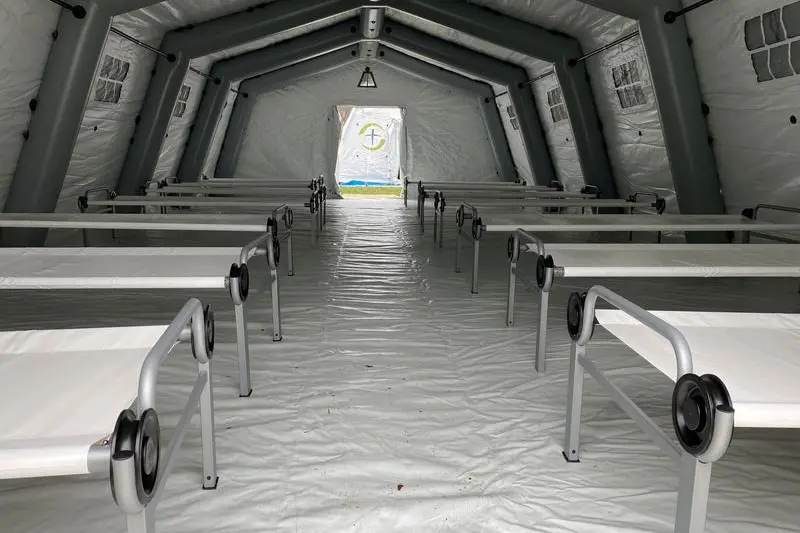PHOTO
NEW YORK - There’s a critical need for doctors for the global fight against Covid-19, but the same can’t be said for healthcare staffing firms Envision Healthcare and TeamHealth. Private equity firms KKR and Blackstone bought the respective companies for roughly $6 billion each in big bets on continued high American healthcare expenditure. But wars with insurers over aggressive billing practices left both weak. Cancelled procedures from Covid-19 will put them in critical condition.
Both private equity owned companies run networks of doctors, often high-priced specialists, for hospitals. Often times rural areas in particular have a doctor shortage, so they tap the likes of Envision and TeamHealth. But patients on Medicare, which often make up a big chunk of patients in rural hospitals, don’t pay much. To turn a profit, companies like Envision will charge higher rates to other patients.
The resulting gigantic bills are not only unpopular with consumers, but also insurers. If there’s no agreement with insurers, patients may be on the hook for hefty out of network expenses, and political blowback against companies and “surprise billing” has resulted. Heavy lobbying last year nixed proposed Federal laws against the most aggressive billing practices, but the threat hasn’t disappeared. The firms have had to pull in their horns. And insurers have increasingly refused to pay demanded prices.
That’s a problem for the heavily indebted firms. S&P Global downgraded Envision to a B credit rating in November, citing higher than expected costs and lower payments from insurers resulting in leverage rising to 9 times by the end of 2019. TeamHealth faced similar troubles, with Moody’s putting its debt on negative outlook in August, with leverage expected to remain above 8 times for the following year.
Covid-19 makes things far worse. Hospitals across the nation are postponing non-essential surgeries and procedures. Listed rival Mednax withdrew its quarterly and annual guidance last week, citing the closure of operating suites and facilities. And Envision has outsourced billing to workers in India, according to a person familiar with the matter, and shut offices there means more chaos.
Yields on senior unsecured debt in both TeamHealth and Envision have ballooned to about 30%. Patients will come back, but when is unclear. With health costs booming from the virus, insurers and governments will probably clamp down even harder on aggressive billing. The future looks bleak for Envision and TeamHealth.
CONTEXT NEWS
- On March 18, the Centers for Medicare & Medicaid Services released guidance to limit non-essential adult elective medical and surgical procedures amid the Covid-19 outbreak.
- According to the Ambulatory Surgery Center Association, 32 states have made official statements on the issue of elective procedures during the pandemic, generally advising against or prohibiting them from being performed. The limitations vary from weeks to indefinitely.
- The debt of Envision Healthcare and TeamHealth are both trading at distressed levels. Envision’s senior unsecured debt due in 2026 currently yields 30% according to Refinitiv data. TeamHealth’s senior unsecured due in 2025 currently yields 27%.
- Blackstone bought TeamHealth in 2016 in a deal worth $6.1 billion. KKR acquired Envision for $5.6 billion in 2018.
(Editing by Lauren Silva Laughlin and Amanda Gomez)
(The author is a Reuters Breakingviews columnist. The opinions expressed are his own.)
© Reuters News 2020





















